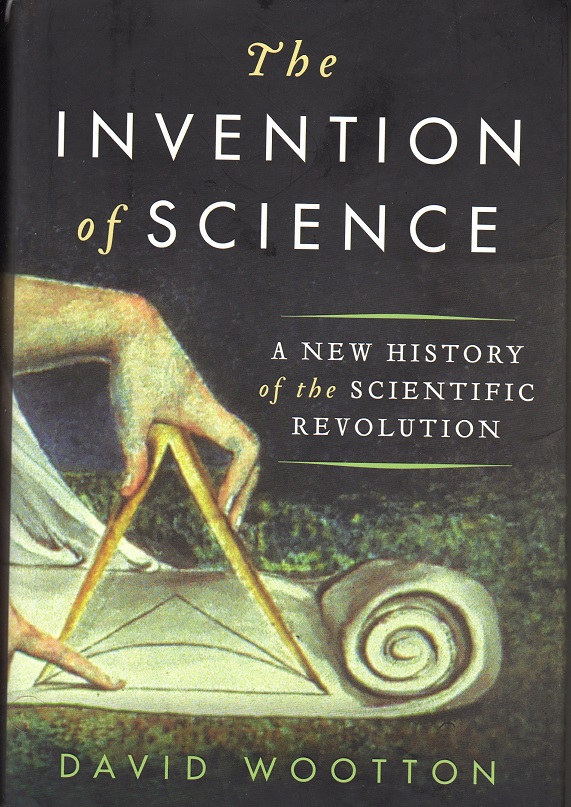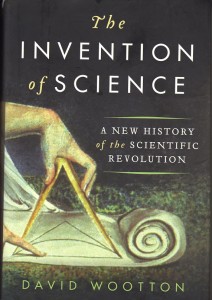Book Review: The Invention of Science: A New History of the Scientific Revolution by David Wootton
At the beginning of the Fifteenth Century, there were no scientists as we understand the term, and no science. Received wisdom from Aristotle and Galen ruled knowledge and philosophy. Then a series of changes in technology and the way people investigated nature brought a new way of thinking. By the end of the Seventeenth Century there were scientists, an intellectual community of people who had created a process we call “science.”
This book covers the history of those centuries, and how the Scientific Revolution began. David Wootton is a professor of Intellectual History at the University of London and an Anniversary Professor at the University of York, and the Sixteenth to Eighteenth Centuries are part of his focus.
There were, according to this book, several contributing factors to the Scientific Revolution. The printing press allowed ideas to be widely spread and preserved for long times. Perspective drawing allowed more accurate pictures to be published–you could build something from plans! The telescope and microscope opened up new worlds to human vision. Readily available compasses improved navigation.
Plus of course, the “discovery” of America showing there were entire landmasses unknown to the ancient philosophers, and a nova in 1572 that revealed the heavens were not fixed and unchangeable as Aristotle had decreed. The old answers no longer satisfied, and people began methodically testing to see what actually happened when, for example, you floated ice in water.
It wasn’t an overnight change; several of the pieces took a while before their true significance or usefulness was understood. At first, much of it was simply mathematicians applying their skills to astronomy or ballistics. But over time, the changes accelerated, so that by the time of Isaac Newton, what he did with refraction of light was clearly the scientific method.
This is a college level text, with copious footnotes and end notes, bibliography and index. Professor Wootton spends a great deal of time tracking down earliest uses of various words used for science in a science-related context, like “fact” and “hypothesis.” This can get tedious, but he’s trying to show how the new way of thinking had to adapt and invent vocabulary for ideas that simply didn’t exist in that form before. Thankfully, there are also illustrations throughout, and a center section of color plates.
The author also has a section devoted to calling out historians he disagrees with, primarily relativists. Apparently, there is a school of thought that science is effectively a group delusion, with more socially prominent or connected scientists imposing their views on their colleagues. Creationism is just as good science as evolution, it would seem. The author claims that there are such things as theories that don’t stand up to facts. I am not educated enough to evaluate his conclusions or his description of other historical philosophies; he may have misrepresented them.
Recommended primarily for history students and science buffs. The casual reader would probably be better off with biographies of the various individual people involved, many of whom led interesting lives that are barely touched on in this volume. (Women and non-Europeans who helped advance the cause of science are barely mentioned, mostly to say they existed.)



We’re fans of historical science as well as science biographies, so I’ll definitely be adding this one to our list. I’d not heard of it before, so thanks for the hedz up.
It’s new this last fall.